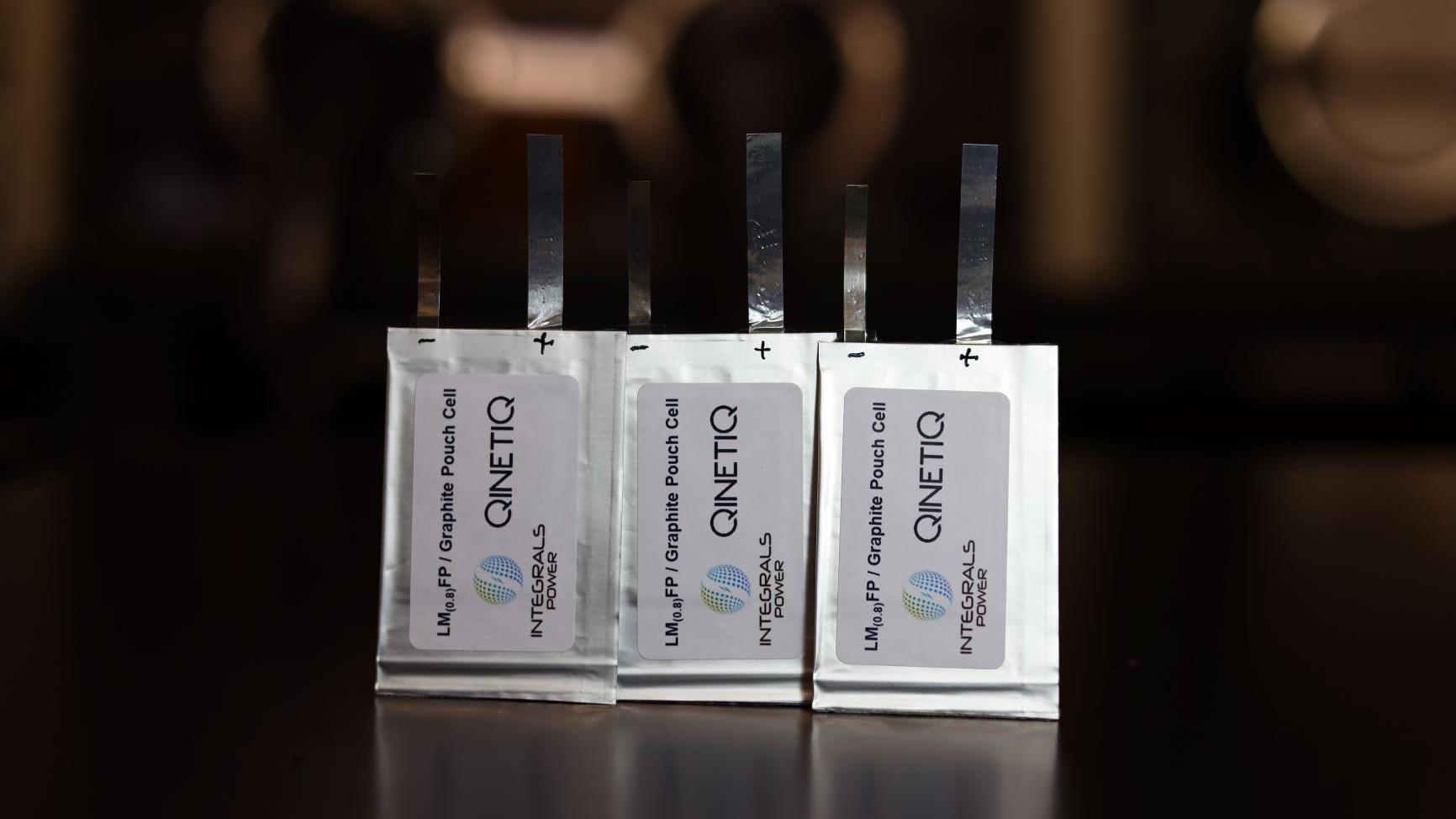The rich Lithium Manganese Iron Phosphate (LMFP) cathode active material developed by Integrals Power has successfully passed the 1000-cycle milestone in ongoing durability testing.
The ongoing test programme, conducted by world-renowned testing and research company QinetiQ, has been running for more than five months and has now accumulated more than 1,000 charge and discharge cycles at 1C rate. The LMFP material (80:20), which has been made into pouch cells by QinetiQ, has retained more than 80% of its original capacity, demonstrating exceptional durability.
Enabling EV batteries to become less costly and less carbon-intensive
Integrals Power Founder and CEO, Behnam Hormozi, said: “We believe that LMFP cells will enable EV battery packs to become less costly and less carbon-intensive to manufacture while offering the range, the long life, and the safety that EVs and other applications need to go mainstream in global markets. These latest results demonstrate to our customers that they can do exactly that, and as QinetiQ continues the test programme we’re confident that the cells will still show impressive capacity retention as we progress to the next milestone.”
While awaiting the next round of test results, Integrals Power is already developing the second generation of its LMFP material. With 30% less internal resistance than the first generation, cycle life and retained capacity are expected to be greatly improved, and preliminary tests have already shown a distinct performance improvement.
Together with the inherently lower cost than the NMC cell chemistries currently favoured by global OEMs and greater energy density offered by LFP, LMFP represents a breakthrough in cell chemistry, offering an optimal balance of the key attributes needed for EV batteries. High energy density LMFP batteries offer enhanced performance and extended operational range, making them also ideal for Maritime, Defence systems, and other demanding applications that require compact, reliable, and long-lasting power sources.
Breaking the automotive industry’s reliance on China
Integrals Power produced the LMFP used in the tests at its UK pilot plant in the UK, from raw materials sourced from Europe and North America, demonstrating that this next-generation cell chemistry can also break the automotive industry’s reliance on China, which currently dominates LFP production.
In light of the recent announcement from China regarding new export controls on LFP and LMFP cathode technologies, the strategic importance of developing and localising battery materials within the UK and Europe has increased significantly. These restrictions highlight the growing fragility of global supply chains and underscore the need for sovereign capability in critical battery components. Integrals Power sees this as both a challenge and an opportunity – to accelerate the commercialisation of its proprietary LMFP technology and contribute meaningfully to the resilience and independence of the UK’s energy storage ecosystem.

